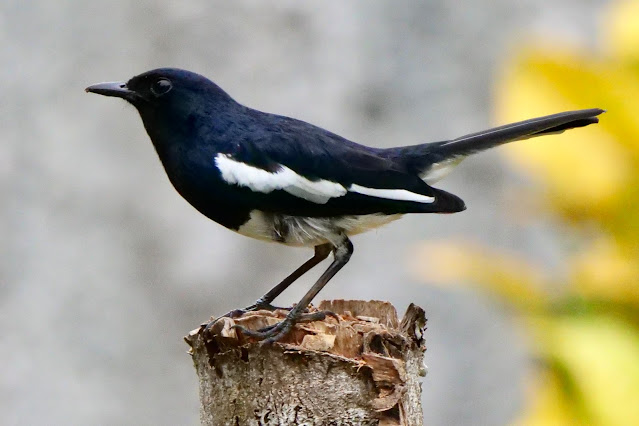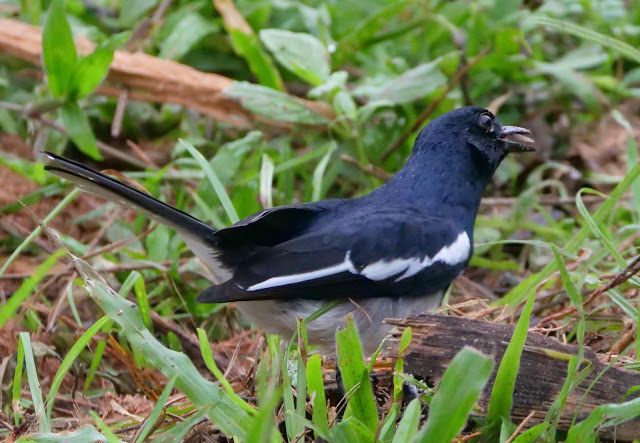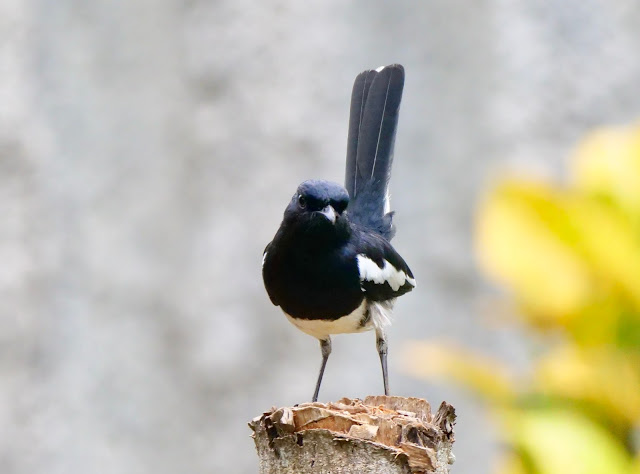When that did not help enough to locate the insect, it started removing the leaves from the grass, by taking them between the beaks and flinging them on to the other side.
Following this, it did locate the insect and I noticed it approaching towards it with its open mouth.
The following four pictures in sequence, are of the Magpie Robin mouthing and swallowing the insect and appearing content !
The bird returned to its earlier location and posed for me to take the following pictures before it flew away.
I do not remember having noticed a Magpie Robin using the beaks for a vigorous scavenging as I noticed it yesterday. The hens would use the feet to scratch the ground and remove the leaves on the ground. The Magpie Robin is skilled to use its sharp and pointed beaks for scavenging the ground.
From my habit of watching few species of birds in our garden, I have got used to watching out for some surprises ahead if I notice a bird perched still in one location for a while.
The Kingfisher is the master in this art. It perches in a tree or a wall high above a stream and watches the movements of fish and tadpoles in water. It flies down in a fast move, to the stream to dip and catch a fish between its beaks and flies away to a safe location, while holding the catch firmly between its beak. It is only after several minutes it would swallow the prey, probably when it was fully strangulated.
The Mag[pie robin family of birds are well groomed birds who keep their feathery coat immaculately clean. And yet, they soil their beaks for scavenging the feed.
It is seldom, I have noticed a Magpie robin with soiled beaks and face, like what I noticed in the same Magpie Robin, perched in another site after about ten minutes.
Each bird species has its own habits and practices. That is why the nature around us, is a treasure house of surprising sights and scenes of bird behaviour!
A bird fends for itself. It follows the prayer the humans recite, 'Give us this day our daily bread' in letter and spirit!
M.C.Mathew(text and photo)
















No comments:
Post a Comment